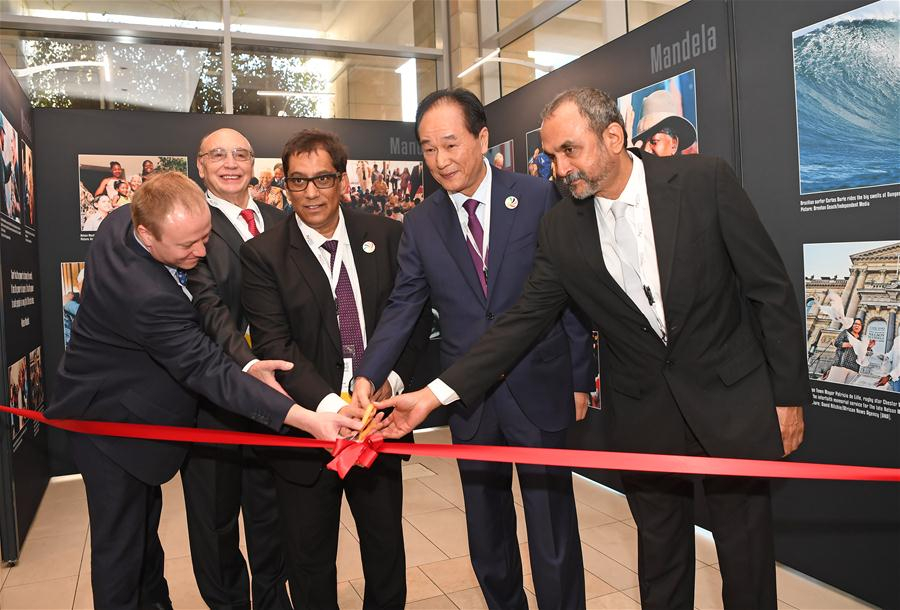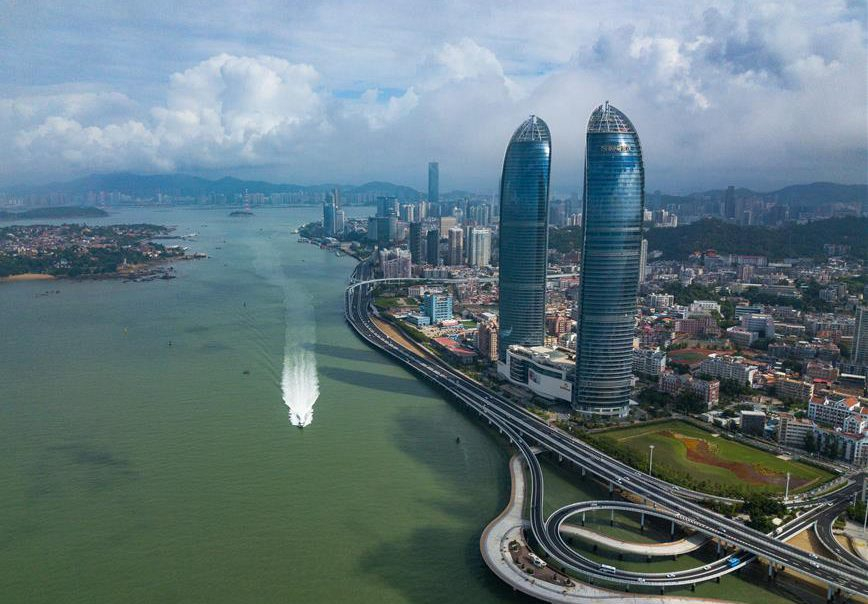
Opinions
09:06, 25-Jul-2018
Opinion: BRICS countries: A new type of globalization?
Updated
08:37, 28-Jul-2018
Zhu Jiejin

Editor's note: Zhu Jiejin is an associate professor at the School of International Relations and Public Affairs at Fudan University. The article reflects the author's opinion, and not necessarily the views of CGTN.
The 10th BRICS summit under the theme “BRICS in Africa: Collaboration for Inclusive Growth and Shared Prosperity in the 4th Industrial Revolution” takes place in Johannesburg at a critical juncture, as there is an increasing backlash against globalization and some developed countries are becoming more inward-looking and moving away from multilateralism to bilateralism and protectionism.
As the beneficiary of globalization to some degree, the BRICS countries should strengthen their cooperation to defend the free trade international order or even restart a new type of the globalization at both global and intra-BRICS levels.

Co-chairmen of the BRICS Media Forum cut the ribbon at the second edition of BRICS Media Joint Photo Exhibition in Cape Town, South Africa, July 18, 2018. /Xinhua News Agency
Co-chairmen of the BRICS Media Forum cut the ribbon at the second edition of BRICS Media Joint Photo Exhibition in Cape Town, South Africa, July 18, 2018. /Xinhua News Agency
At the global level, the BRICS members can keep the centrality of the rule-based, transparent, non-discriminatory, open and inclusive multilateral trading system (MTS) as embodied in the WTO.
The WTO is important in terms of the efficient allocation of resources, free flow of goods, and fair and orderly competition to the benefit of all, but is in serious crisis now.
For BRICS countries, there are two imminent tasks to revitalize the WTO. On one side, the dispute settlement system, a cornerstone of the security and predictability of the MTS, should be enhanced. The system has proved to be more effective and reliable than its predecessor in the GATT era.
Currently, the impasse regarding the appointment of Appellate Body members really needs a solution as it can paralyze the dispute settlement system and undermine the rights and obligations of all members. So the selection of Appellate Body members should be a matter of priority for all WTO members.
On the other side, the Doha Development Agenda must remain integral to the WTO’s work, which is important for developing country members, especially the least developed.
The WTO needs to continue to make positive efforts to ensure that developing nations secure a share in the growth of international trade commensurate with the needs of their economic development.
The BRICS can continue their efforts towards the successful conclusion of the Doha Round of the WTO based on the progress already made and in keeping with the mandate established in the Doha Development Agenda.
At intra-BRICS level, the strategy for the BRICS Economic Partnership and the BRICS Action Agenda on Economic and Trade Cooperation are two guiding blueprints for member countries to strengthen economic and trade cooperation.
Trade and Investment Facilitation, Trade in Services, Electronic Commerce (E-commerce), Intellectual Property Rights (IPR) and Micro, Small and Medium Enterprises (MSMEs) should be the 5 priorities.
Firstly, on trade and investment facilitation, BRICS countries should enhance cooperation in the fields of technical regulations, standards, and metrology and conformity assessment procedures. South Africa hosts the BRICS Business Forum on July 25 and China will host the China International Import Expo November 5-10 in Shanghai, facilitating trade and investment cooperation among the BRICS and other countries.
Secondly, on trade in services, the BRICS countries have established the BRICS Focal Points on Trade in Services and the initial exchange of information on international trade in services. Developing a guidebook on trade in services and exchanging the international trade in services statistics should be the next task.

Xiamen, where the 2017 BRICS Summit was held. /Xinhua News Agency
Xiamen, where the 2017 BRICS Summit was held. /Xinhua News Agency
Thirdly, on e-commerce, a working group was established during the Xiamen summit in 2017. In order to address the digital divide, the BRICS countries can share experiences in promoting development through e-commerce as an ongoing activity and explore the possibility of sharing best practices, including developing case studies.
Fourthly, on intellectual property rights, BRICS Heads of Intellectual Property Offices have met successfully for six years, producing sustained achievements at international fora. In order to build a more balanced IPR regime between IPR owners and users, BRICS nations can develop an IPR guidebook and explore the potential of creating a BRICS-led New IPR international organization.
Lastly, BRICS countries can enhance cooperation on MSMEs by exchanging information and best practices on MSMEs regulation and support and facilitating MSMEs' access to public services, financing, exports and international projects. Also, the BRICS Contact Group on Economic and Trade Issues (CGETI) can establish the institutional arrangement by holding dedicated sessions and establishing focal points to give effect to MSME cooperation. After all, institution-building is the best guarantee to push BRICS MSME cooperation in a sustainable and credible way.

SITEMAP
Copyright © 2018 CGTN. Beijing ICP prepared NO.16065310-3
Copyright © 2018 CGTN. Beijing ICP prepared NO.16065310-3